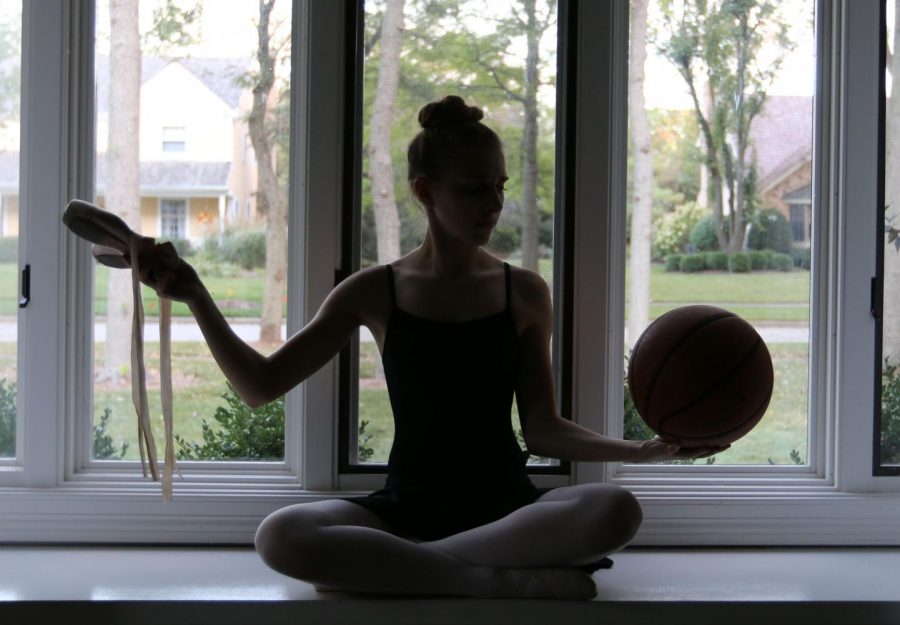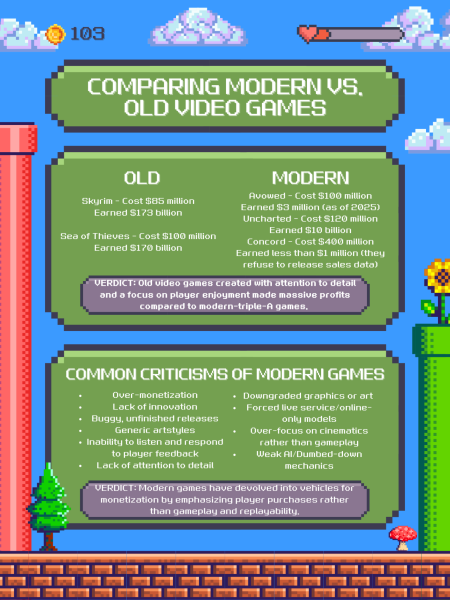Leaping to Conclusions
Though dancers are extremely dedicated to their art, they are often unfairly mocked and disregarded by those in conventional sports.
Just to clear the air — I am not here to argue that dance is a sport. Technically, it’s not. I acknowledge that it’s an art. What I am here to argue against is the criticism that dance receives because it is not considered a sport.
Time and time again during my 13 years of dancing, I’ve been told that “dance is so easy, anyone can do it” and “dance isn’t even a sport, so why does it matter?” Dancers are taught to make performances look easy but everything is not as it seems.
Deeming dance irrelevant because it is not a sport aggravates me, along with other dancers as well. Just because practices don’t consist of sprints, long runs or conditioning doesn’t mean that dancers are not physically fit or lack high stamina.
While on stage, besides leaping and turning, we are constantly maintaining our posture, straightening and bending our legs, having to remember the dance, and spotting and pointing our feet. Dancing on stage is anything but easy. And, no matter how much time we spend rehearsing, for some, dances can be forgotten in an instant because of stage fright.
There are so many aspects to dance that can only be viewed from behind the scenes, which is why it is unfair for people to judge dance solely based on viewing one or two performances.
Most classes consist of a warm-up, across the floor or working on the latest combination. Across the floor is when we start on one side of the studio and travel to the other side, building up from single turns and six-steps to triple turns and leaps. Combinations are what we do before we learn our piece for the show — our teacher makes up a different dance that we can work on from time to time so we are not solely working on the fundamentals but practicing putting all of them together into a full-length dance.
Each class requires just as much effort as any sports practice does. By the end of the class, everyone’s hair is out of place, their faces are red, they’re dripping sweat and can barely catch their breath.
Lastly, the practices are tedious and time-consuming, which many non-dancers do not realize. I was involved in a dance company that practiced a minimum of two and a half hours a night, with some even lasting five hours. On weekends and over the summer, we had six-to-nine hours of practice in preparation for our show every Sunday, and four-to-five hours Friday.
Not only are the practices in the months prior to the show time-consuming, there is also dress rehearsal, which can either last a day, or two. How long the dancer spends rehearsing is dependent on how many dances they are in. When I was in the company, I had to spend a majority of the two days practicing, spacing and running through dances. Dancers spend exorbitant amounts of time practicing just to showcase a three-to-four minute dance.
Considering all this time spent on one dance, imagine how dancers feel when all their hard work is dismissed in a second by someone naive to the way dance works. When people make comments like the aforementioned ones, it’s irritating. If someone loves what they’re doing and does indeed get exercise out of it, it doesn’t make sense for others get to hate on it just because it’s different than what they like to do in their free time.
Now that you have learned more about what goes into a dance, try to be mindful of what you say to dancers. Demeaning dance is the equivalent of degrading a sport. If someone were to say that football is easy and it’s irrelevant, don’t you think a football player would be offended? It goes the same for dancers. Although it is not a sport, it still deserves the same amount of respect as any other after-school activity.
Not many realize it, but dance requires just as much dedication as any other sport. When someone’s passion is put on the back burner, it’s one of the worst feelings in the world. Knowing that others don’t appreciate what you spend so much time doing is devastating.










